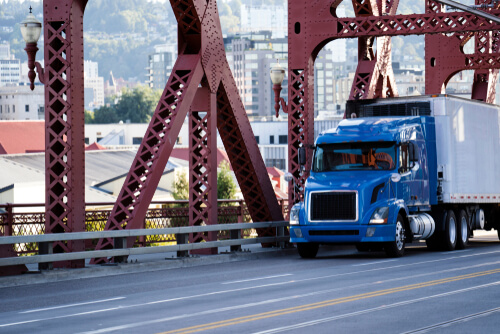What Is a COI in Trucking and Do You Need One?

What are you waiting for?
Make more money starting now.
Aside from a driver’s license and your MC number, a certificate of insurance (COI) is one of the most important documents for owner-operators. It shows that a driver is properly insured, and without it, most brokers and shippers wouldn’t consider hiring an independent driver to fulfill a job.
We outline the importance of a COI in trucking, what a COI covers, and the proper channels for requesting and sharing a COI.
What is a COI in trucking?
A COI is more than just a policy number. It’s a formal document that an insurer creates, and it includes:
- The name of the insured and their contact information
- Policy number(s) and expiration dates
- Limits on cargo coverage, liability, personal injury, and property damage
- Deductibles
The COI also includes the name(s) of any “additional insured” parties, if there are any. Brokers or shippers may sometimes ask to be listed as an additional insured, but carriers should defer to their insurance underwriters for guidance.
What’s the purpose of a COI?
-
Verification of coverage and identity
A COI proves that an owner-operator has at least the minimum insurance mandated by the FMCSA, and that they are who they claim to be. Fraud and identity theft continue to be a problem in trucking, so brokers and shippers will want to make sure the name on the policy matches the owner-operator’s name and government-issued identification. Only insurance companies can file insurance forms online to submit to the FMCSA. Once that’s complete, your status can be verified using QCMobile to access your records on file.
-
Compliance with business policies
Freight brokers and shippers may have an internal policy that requires them to request a COI before signing a contract with carriers.
-
Risk assessment
In some cases, the minimum insurance requirements for carriers may be inadequate to cover potential losses for a broker or shipper. If that’s the case, these other parties might ask a carrier to amend their coverage with a rider, which is a document that customizes insurance for specific situations.
Why Your COI Matters in Trucking
Hit the road with confidence knowing you’re covered. A COI is essential to stay compliant and keep your truck hauling more loads. A COI verifies you have the required insurance for the job, protecting both you and the shipper. Don’t get caught without one – keep your COI updated and readily available to avoid delays on every haul.
FAQ
Get helpful content delivered to your inbox.
Sign up today.
Find high-quality loads fast, get higher rates on every haul, and access tools that make your job easier at every turn.






